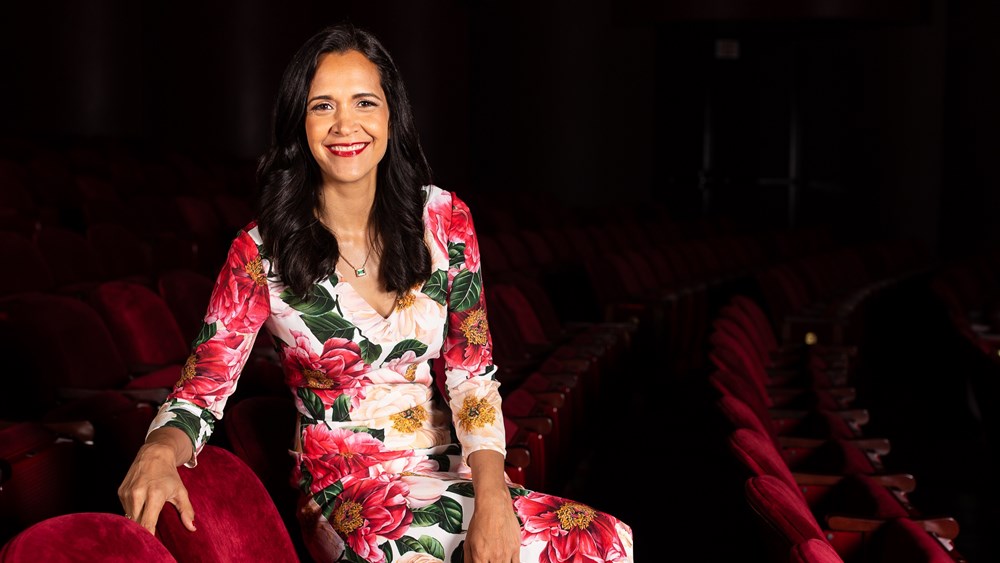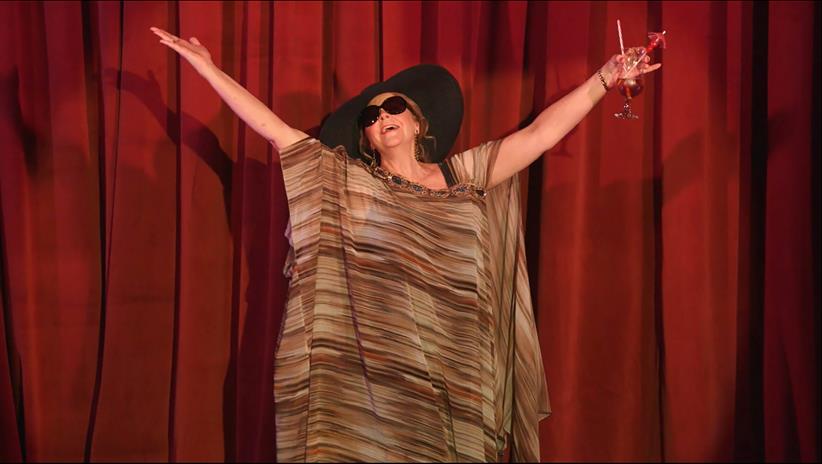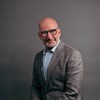Houston-Bound

From singing on stages across the world, to providing support for the arts through a senior position at the Packard Humanities Institute, to making a big splash as general director of Opera San José, Khori Dastoor has seen opera from all sides. Those experiences — as well as her vision for the industry and willingness to push up against people’s comfort zones — caught the attention of Houston Grand Opera, where Dastoor will begin serving as general director and chief executive officer and Margaret Alkek Williams Chair in January. Marc A. Scorca spoke with Dastoor (who is also a board member of OPERA America) to learn more about where she’s been and where she’s heading.
Marc Scorca: Who brought you to your first opera?
Khori Dastoor: A woman named Rebecca Thompson, who taught music at my school. She told me that I should audition for the LA Children’s Chorus. The next thing I knew, I found myself backstage at an opera. I sang the part of the shepherd boy in Tosca, then in Hansel and Gretel and Carmen and several others. And I wasn’t just doing opera. We sang on the Mike and the Mechanics album, and Disney was doing Hook at that time and we sang on that soundtrack. So we were working a fair amount in LA, making music videos and doing recordings. She’s the reason I went to Europe as a child to tour — we did an exchange with the Vienna Boys Choir.
You were a working singer before you really knew what working for a living meant. When did you have that adult realization that you would have to work and you wanted singing to be that work?
I never had that realization. And I think that’s the definition of privilege, to be able to dream about what brings you joy. My family did so much to make sure I could think about my dreams and my joy and who I am. My education and early performing career were an extension of that journey into self-realization. Somehow, I always found a way to contribute to my community and I think in exchange, the community sustained me.
You sang professionally for many years, but how did you transition into the business of opera?
As I left my adolescent life behind, I started thinking to myself, “What am I really going to contribute to this industry? Who am I, and what are my gifts?” And I realized I wanted to be producing work that welcomed people from all different places and generations. I wanted to be a part of making the argument that this art form can be deeply impactful.
I remember thinking that very often, the productions I was in were either repetitions of what we had done and seen before many times, or they were in tension with the creative intention of the work or the desires of a modern audience. I got really interested in who’s at the table when the decision gets made to green light a project. That led me to institutional giving.
How did your work as a foundation officer inform what you’re doing today?
That foundation has given me an understanding of the commerce of arts and culture and the paths of sustainability that are emerging for the next generation. I think very often, singers and creatives overestimate the demand for our product. But as a philanthropist, you become attuned to measuring impact and selecting work in service of the mission and mandate of the organization you serve. The reality is that right now a new generation is inheriting the stewardship of family foundations across the country, and this generation has a very different relationship with the arts than their parents. We have both a burden and opportunity to make the case for the arts to the next generation. Our industry claims to drive value to communities by providing connection and belonging. Maybe we do, but how do we know? What value do we actually provide? Do we measure it? Do we invest in civic engagement before we profess it amongst our core values? Whether we like it or not, philanthropy is moving in the direction of wanting to be more results-oriented.
Are you disheartened by that?
Not at all. I think it’s good for us. It challenges us to really justify the value of each investment. We shouldn’t produce 12 operas a year and really believe in only three of them. That’s not a good return on the dollar for our philanthropic partners.
Oftentimes people articulate what’s called spillover value, or skills they learned as a musician that really serve them in other capacities as life goes on. How did your life as a professional singer contribute to your skill set today as a leader for opera?
When I was traveling around and performing, the smart administrators were putting the young singers and the patrons in as much contact as possible. That gave me a really deep understanding of what motivates opera patrons in this country. I found myself literally at the breakfast table with them hearing their stories of how they came to support opera.
I think my performance life gave me an understanding of how to be a person who is finding solutions. I was a singer that found work because directors wanted me in the room and conductors knew I was prepared. I honed
my instincts around making the lives of other people easier and making it easier for other people to do their job. And that’s what I do now, really.
And my work in straight theater was tremendously impactful, as well. That world was my introduction to the language of equity and inclusion, how art forms serve different audiences, how we interpret Shakespeare and other Western canon masterworks in the context of modern politics, and how we challenge people’s ideas. Those conversations had not come to the opera yet, and so I think a lot now about what we’re going through as an industry and how because of my time in the theater world, I can identify where our journey is going, even though it’s happening in a different way. We’re facing many of the same exact questions around who gets to say what, who pays for what, who do we partner with, and what we want to bring to our performances now.
In San José, you performed in and ran a company that had a unique ensemble approach to opera production. Give me one benefit and one challenge from each side of that ledger.
From a patron perspective, the opportunity to form a relationship with a singer and to see that singer in different styles, different contexts, and to watch the evolution of that artist is tremendously gratifying. That’s why people come to Opera San José — to see an ensemble of singers and deepen their understanding of the human voice. The con is that in order to build a season that will work for the same group of voices, we are limited in the repertoire we can select.

When COVID hit, your company was out front in thinking about what to do digitally. I was just in San Francisco and they’re still raving about your film project Three Decembers. Did you enter the crisis thinking strategically about what you could do? Or was it like, “Folks, let’s see what ingredients are in the refrigerator and what can we make out of them?”
It was sheer fear. I think if we had had a huge endowment, a more established management team, and key donor relationships we could have tapped, we may have adopted a more typical approach. But this was a make-or-break moment for us. Opera San José was either going to work with this new vision and this new team, or it wasn’t going to survive. Shutting down and furloughing and firing the artists and administrators wasn’t an option. Our community really came together and supported us and stood by our artists. From the very beginning of the pandemic, we knew we had to do
something to serve them, to thank them, and to keep us in connection with one another.
What drew you to the job at Houston Grand Opera?
First, the opportunity to commission work, to select the stories that get told, and to curate and support the voices that are going to make the future of American opera is such an honor. The mandate from HGO’s community is clear: to make impactful institutional investment in the process of creating new work. The entire organization is really oriented toward the next generation. They’ve hired me because they want to support and amplify the next generation of opera in our country. Second, Houston is a beautifully diverse city, the most diverse in the country, and Houston Grand Opera seeks to reflect that diversity on our stages and in our audiences. That goes hand in hand with its rich history of commissioning new works that every member of this community can really connect with. Opera is ready to evolve for the next generation of operagoers, and Houston Grand Opera is poised to lead that charge forward.
What do you see as your role as the leader of the company?
My role is to really empower my team members and the people that work for Houston Grand Opera to be able to access the best versions of themselves. Every day, someone in this building is making a decision that’s going to profoundly impact the next 10 years of our business. In an organization of this size, I’m not always going to be in the room, so my job is to build an organization of empowered, clear thinkers who tie the decisions they make directly to the mission of the organization and its key priorities.
This article was published in the Fall 2021 issue of Opera America Magazine.

Marc A. Scorca
Marc A. Scorca is the president/CEO of OPERA America.




